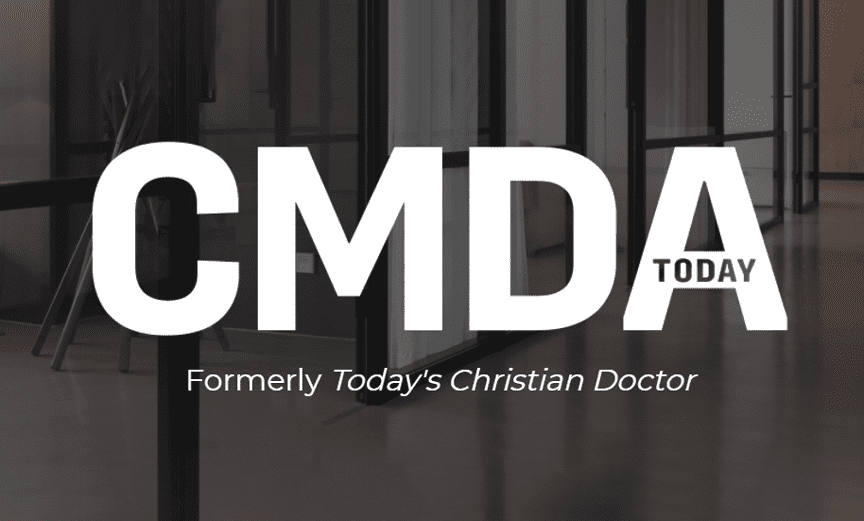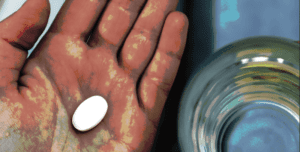
When Caring for The Unbelieving Terminally Ill Patient
Over my 20 years as a hospital medicine physician in one of the least churched areas in the country in San Francisco, I have cared for several patients who are terminally ill. Though such duty is never a happy one, spiritually I found it hardest to know how a Christian physician can best care for the terminally ill unbelievers.

by Joel Cho, MD
Over my 20 years as a hospital medicine physician in one of the least churched areas in the country in San Francisco, I have cared for several patients who are terminally ill. Though such duty is never a happy one, spiritually I found it hardest to know how a Christian physician can best care for the terminally ill unbelievers. For example, I remember an elderly man (I will call him Mr. Jones) who was dying of multi-organ failure. As his body was failing him, even dialysis eventually stopped working. Everyone knew it was only a matter of days before he would fall asleep and not wake up. Mr. Jones was a kind and courteous gentleman, and he always held my hand when I was in his room. Even in his state, I was grateful for the respect he had shown me as his physician.
As I watched his health slowly downward spiral in front of my eyes, as I often ask terminally ill patients, I asked him if he attended church or had a religion. His answer was a firm “no.” Typically I don’t push the spiritual issue more when my patients are not interested. But, the next day, as he was holding my hand as usual, for some reason I felt compelled to ask him again, “Are you sure you don’t want to see a pastor or chaplain? I just want to make sure we can provide the best care for you wholistically…Did you grow up attending a church?”
“Oh, yes, I did. I grew up Christian.”
“I could get you a chaplain if you’d like…”
Shaking his head slowly, “No.”
I could then tell he was getting fatigued and didn’t want to converse much more. So, I performed the rest of my medical exams, informed him of the plan for the rest of the day, and left his room, uttering quiet prayers for him under my breath. That was the last time I saw him.
As I look back, I wonder if I had done all that I could for Mr. Jones. I was at his bedside every day that week. As his physician, I had the privilege to have his undivided attention when I was in his room. Should I have probed a bit more about his relationship with Jesus? But wasn’t that too much for someone who could barely stay awake as toxins built up in his body?
I often have struggled with such situations throughout my career. Over the past few years, through the miracle of the Internet God has opened doors for me to receive a formal theological education at Reformed Theological Seminary (RTS) while working full-time as a physician. This theological training helped me to reflect on this all-too-common dilemma for all physicians a bit more thoughtfully and prayerfully. That’s what I would like to share here. Though my reflections here are neither comprehensive nor authoritative, I hope this will be beneficial to anyone whom God has called to be in healthcare—or, as you are now caring for an unbelieving loved one.
Physicians are Not in Control
In Western societies, healthcare professionals are often praised as healers and are highly regarded. While I appreciate such warm sentiments, when being honest, any physician worth his salt would tell you that such praise is highly exaggerated. Modern surgeons can fix the plumbing in our human body with elegance but cannot make dead tissue live again. With the advancement of HIV medications, HIV positive patients now have the same life expectancy as the rest of the population; however, in the end, the eventual physical demise comes to us. As my oncology colleague once commented, “Human mortality rate is still 100 percent.” At the microscopic level, the ultimate repair of human tissues happens because God has designed our bodies with the ability to repair themselves. If our human bodies were not so wonderfully made by God (Psalm 139:14) with a built-in mechanism to heal, no amount of medicine would have a prayer in healing anything. As much as I would hate to admit, physicians are not all that powerful. Sure, we are called to care for our patients to the best of our abilities. At the same time, the truth is that healthcare professionals are but stewards of the tools that He has graciously allowed humanity to discover through science.
God Alone is Sovereign
When bad news comes to me, my natural reaction is, “How could this have happened?” in bewilderment. However, it is important to remember that nothing—absolutely nothing—surprises our God. As I approach the twilight of my healthcare career, I wish this one lesson that I wish I could tell my young self. As a Christian healthcare professional, in my profession, I am called by God to do all I can to care for my patient, but at the same time, fully acknowledge that He alone is in control. As Elisabeth Elliot famously put it, the best posture of a healthcare professional ought to be, “No, never lazy, sluggish, or slothful, but He knew when to take action and when to leave things up to His Father. He taught us to work and watch but never to worry, to do gladly whatever we are given to do, and to leave all else with God.”
God is Not Just Sovereign but is Good.
A recent book by Dr. Guy Prentiss Waters has been a tremendous help in thinking about this issue. When speaking with an unbeliever with a terminal disease, rather than being overwhelmed about the gravity of the situation or focusing so much on what I can do, it is much more helpful to reflect on just how good our God is. Dr. Waters elaborated, “We must also remember the Bible’s teaching that God is perfectly just and righteous. God never does any human being wrong or does injustice. No one—ourselves included—deserves the least bit of mercy from Him. We must never let our confidence in the integrity of God’s character waver.”[1]
Rather than being overly focused on what I can do at such moments, “the best thing to do is to steer the conversation towards Jesus Christ and the gospel” (Waters, p. 64) After all, does not salvation belong to Him alone (Revelation 7:10)?
Perhaps Mr. Jones cried out to Jesus, whom he had learned about in his childhood with his dying breath, though no one else heard it. In a previous article, I wrote that deathbed confessions are rare, and I never had the privilege to be a witness to one. By far, it is much better to make it a priority to be reconciled to God today. At the same time, I have also come to realize that God’s grace in His Word is greater than anyone’s personal experiences. His Word alone is authoritative, and His goodness is far beyond my feeble mind and experiences. Just look at Jesus! He said He would not lose anyone who should cry out to Him (John 6:39).
That still does not mean I don’t look back and wonder if I should have spent more time sharing the gospel with Mr. Jones—as well as many other Mr. Joneses I have cared for over my 20 years. On this side of heaven, I doubt I will ever know if I have done all I could. May God have mercy on me for all my failings! But I do know that my God is good and gracious far beyond what I can do or imagine. (Ephesians 3:20). One day, by His mercy when I am up in glory, perhaps I will be pleasantly surprised to run into Mr. Jones and maybe others whom I had the privilege to care for during their last days.
I sure hope so.
[1] Facing the Last Enemy: Death and The Christian, Guy Prentiss Waters, PhD. P. 63. Ligonier Ministries, 2023.
About The Author
Joel Cho, MD is senior physician of Kaiser Permanente San Francisco. He is a candidate for master of arts in theological studies at Reformed Theological Seminary.





